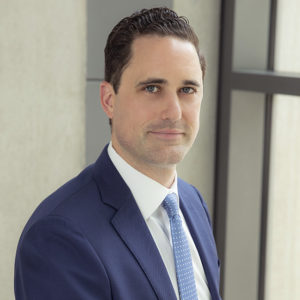As medical practices increasingly incorporate estheticians into their teams to meet the growing demand for aesthetic services, understanding the legal boundaries of their role is essential. While estheticians bring valuable skills to the table, their scope of practice is tightly regulated, and missteps can expose a practice to significant legal risks. Below outlines what medical practices can do to remain compliant when hiring or working with estheticians.
Understand the Scope of Practice for Estheticians
An esthetician’s scope of practice is governed by state-specific laws, often overseen by the state’s board of cosmetology or similar regulatory entity. These laws define the services estheticians are legally permitted to provide, which typically include facials, surface skin treatments, waxing, and makeup application.
For medical practices, it’s crucial to recognize that estheticians are not licensed to perform medical procedures unless a particular procedure commonly thought of as being medical is explicitly allowed by law or board rule, or the esthetician is permitted to act under the state’s medical delegation rules. While some states have advanced practice esthetician licenses that permit certain medical-adjacent services under supervision, these remain the exception rather than the rule.
To ensure compliance, medical practices must thoroughly understand the statutes and rules in their state. This includes delegation rules to understand what tasks can be assigned to estheticians by licensed medical providers, such as physicians or nurse practitioners, and the level of supervision required for such tasks. Since laws and regulations can change, practices must stay updated by periodically reviewing applicable guidelines.
The Risks of Misleading Titles
The title “medical esthetician” is a common source of confusion and significant legal risk. No state officially recognizes the title, and using it can imply qualifications that extend beyond an esthetician’s legal scope of practice. For medical practices, allowing an esthetician to use this title or marketing them as such can lead to allegations of practicing medicine without a license, which can trigger investigations into both the esthetician and the supervising medical providers, as well as the practice itself.
Standardized Esthetician Titles
To mitigate these risks, medical practices should standardize the titles used for estheticians, ensuring they accurately reflect the individual’s qualifications. Titles such as “licensed esthetician” or “master esthetician” (if recognized in the state) are more appropriate and legally compliant. It is equally important to review all advertising and promotional materials to ensure they do not misrepresent the esthetician’s role. Training staff and third party marketing companies on the importance of compliance in titles and marketing is another crucial step in avoiding potential liability
Establish Clear Supervision and Delegation Protocols
Supervision and delegation rules are critical when estheticians are able to provide medical services within a medical practice. Each state typically dictates whether and how licensed medical professionals can delegate certain tasks to estheticians. Medical procedures (when allowed by a state), such as microneedling, chemical peels, or laser treatments, often require direct supervision from a licensed medical professional, even if performed by an esthetician with advanced training.
To remain compliant, medical practices should institute clear protocols for supervision and delegation that adhere to state laws. Detailed documentation is essential, including records of who performed each procedure, the supervising provider, and the patient’s consent. Additionally, it is vital to verify that estheticians have received proper training and certifications for any delegated tasks, even if being directly supervised.
Maintain Compliance with ByrdAdatto
At ByrdAdatto, we help medical practices understand their legal scope of an estheticians practice and navigate regulations in their state. Our legal team can assist you in interpreting state laws, avoiding potential legal risks, and ensuring your medical practice is compliant. If you have questions about an esthetician’s scope of practice, supervision and delegation rules, or other legal matters, contact ByrdAdatto.
